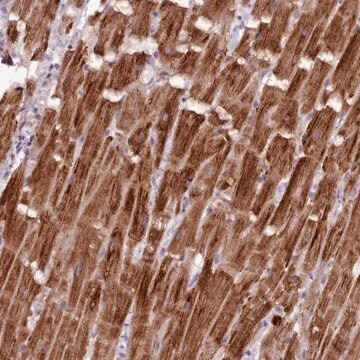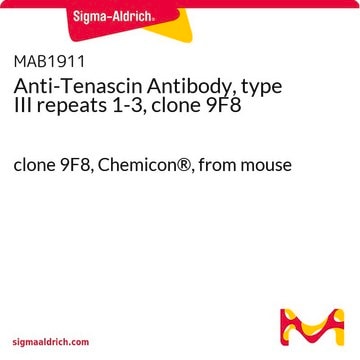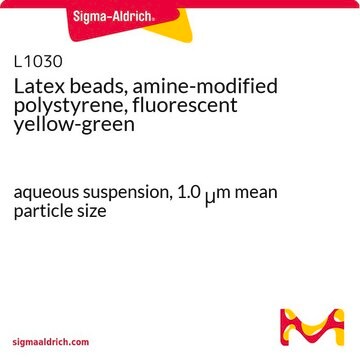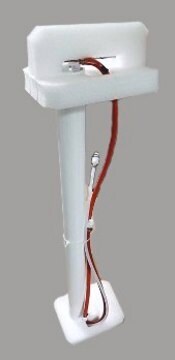MABF267
Anti-Cochlin Antibody/COCH, clone 9A10D2
clone 9A10D2, from rat
Synonym(s):
Cochlin, COCH-5B2
About This Item
Recommended Products
biological source
rat
Quality Level
antibody form
purified immunoglobulin
antibody product type
primary antibodies
clone
9A10D2, monoclonal
species reactivity
human, mouse
technique(s)
immunohistochemistry: suitable
western blot: suitable
isotype
IgG2aκ
NCBI accession no.
UniProt accession no.
shipped in
dry ice
target post-translational modification
unmodified
Gene Information
human ... COCH(1690)
General description
Immunogen
Application
Inflammation & Immunology
Immunoglobulins & Immunology
Western Blotting Analysis: A representative lot detected Cochlin/COCH in spleen and lymph node from WT and COCH knockout mice (Py, B.F., et al. (2013). Immunity. 38:1063-1072).
Western Blotting Analysis: A representative lot detected Cochlin/COCH in protein cleaved into p18 and p8 products. (Py, B.F., et al. (2013). Immunity. 38:1063-1072).
Immunohistochemistry Analysis: A 1:50 dilution from a representative lot detected Cochlin/COCH in mouse spleen tissue.
Immunohistochemistry Analysis: A representative lot detected Cochlin/COCH in spleen and lymphnode from WT and Coch knockout mice (Py, B.F., et al. (2013). Immunity. 38:1063-1072).
Quality
Western Blotting Analysis: 1.0 µg/mL of this antibody detected Cochlin/COCH in 10 µg of mouse spleen tissue lysate.
Target description
Physical form
Storage and Stability
Other Notes
Disclaimer
Not finding the right product?
Try our Product Selector Tool.
Storage Class Code
12 - Non Combustible Liquids
WGK
WGK 1
Flash Point(F)
Not applicable
Flash Point(C)
Not applicable
Certificates of Analysis (COA)
Search for Certificates of Analysis (COA) by entering the products Lot/Batch Number. Lot and Batch Numbers can be found on a product’s label following the words ‘Lot’ or ‘Batch’.
Already Own This Product?
Find documentation for the products that you have recently purchased in the Document Library.
Our team of scientists has experience in all areas of research including Life Science, Material Science, Chemical Synthesis, Chromatography, Analytical and many others.
Contact Technical Service








